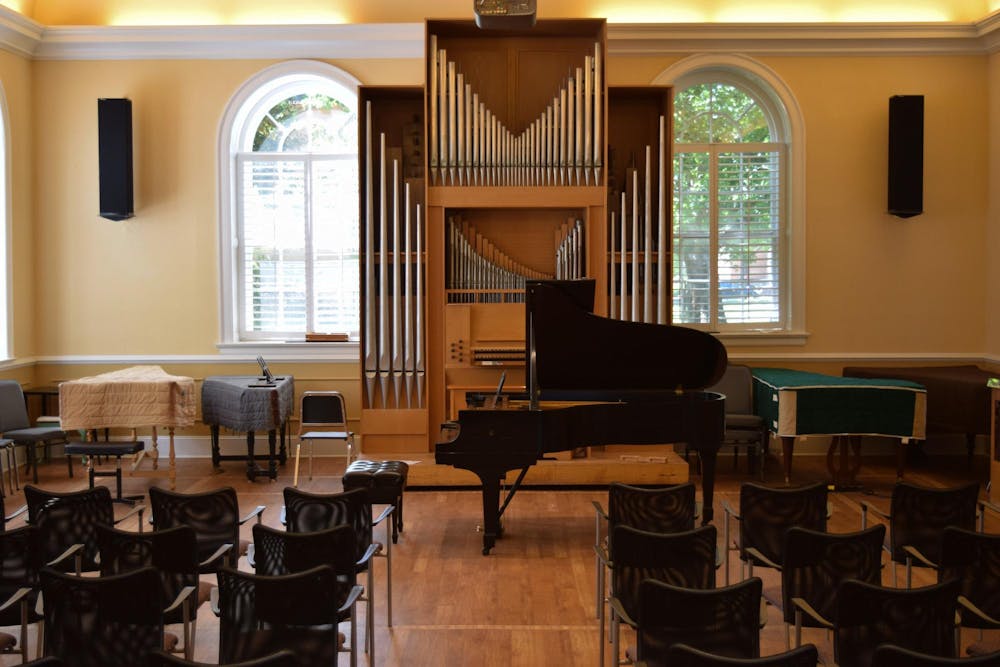Gentrification is often seen as a visual process — more outsiders, more coffee shops, more upper-middle-class apartment buildings. But just as important, argued ethnomusicologist Allie Martin in UNC's Person Recital Hall, is its effects on noise and music.
Martin, an assistant professor at Dartmouth College, came to UNC on March 28 to talk about her new book "Intersectional Listening," which explores the relationships between race, sound and gentrification in Washington, D.C. The book also sheds light on gentrification's effects on go-go music, a subgenre of funk music that is native to D.C.
Her lecture was made possible by the UNC Music Research Forum, which brings distinguished music scholars from around the world to present their work to the UNC community. The forum was previously known as the Carolina Symposia in Music and Culture.
The UNC Music Research Forum is hosted on the last Friday of each month during the academic year, usually from 3:30 p.m. to 5 p.m., in Person Recital Hall. The forum is free and open to all UNC students and community members interested. It makes up some of the many events the Music Department organizes throughout the year.
Around 20 people attended Martin's lecture. Many of them were graduate students in UNC's musicology program, the study of history, theory and sociology of music.
Mick Anderson, a second-year doctoral candidate specializing in 1960s American music, said he was attracted to UNC’s musicology program because it is one of the best in the country.
“We have top-notch faculty,” Anderson said. "There are all kinds of celebrities in the field."
Maureen Rafter, a first-year doctoral candidate in musicology and one of two student co-chairs of the forum, wrote in an email to The Daily Tar Heel that she came to UNC because of the excellent reputation of its musicology faculty and diverse research profile.
In her talk, Martin described how her work found that gentrification is a process that silences marginalized populations while amplifying the concerns of more privileged D.C. civilians.




